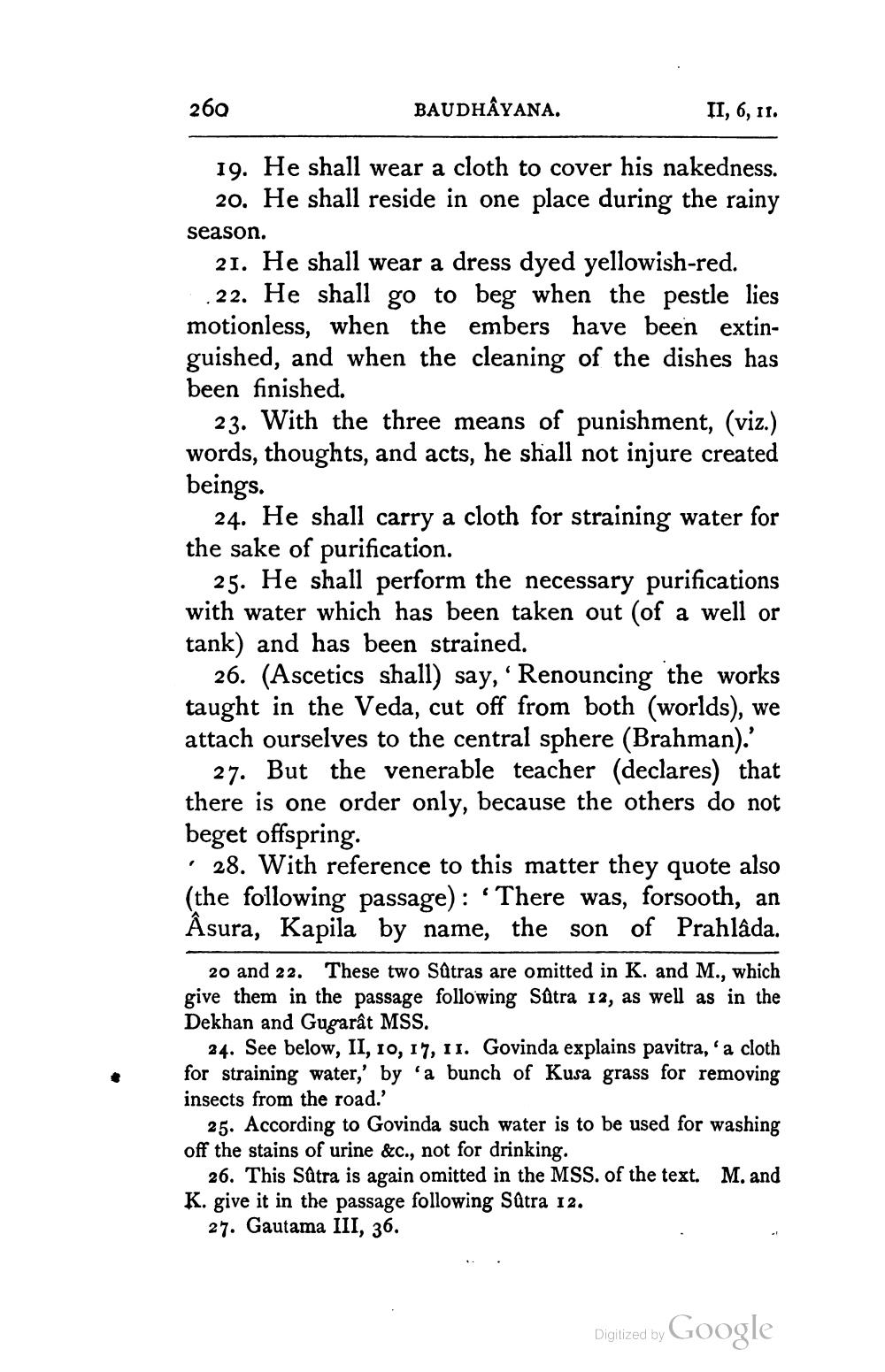________________
260
BAUDHẤYANA.
II, 6, 11.
19. He shall wear a cloth to cover his nakedness.
20. He shall reside in one place during the rainy season.
21. He shall wear a dress dyed yellowish-red. .22. He shall go to beg when the pestle lies motionless, when the embers have been extinguished, and when the cleaning of the dishes has been finished.
23. With the three means of punishment, (viz.) words, thoughts, and acts, he shall not injure created beings.
24. He shall carry a cloth for straining water for the sake of purification.
25. He shall perform the necessary purifications with water which has been taken out (of a well or tank) and has been strained.
26. (Ascetics shall) say, 'Renouncing the works taught in the Veda, cut off from both (worlds), we attach ourselves to the central sphere (Brahman).'
27. But the venerable teacher (declares) that there is one order only, because the others do not beget offspring. • 28. With reference to this matter they quote also (the following passage): 'There was, forsooth, an Asura, Kapila by name, the son of Prahlada.
20 and 22. These two Sätras are omitted in K. and M., which give them in the passage following Sätra 12, as well as in the Dekhan and Gugarât MSS.
24. See below, II, 10, 17, 11. Govinda explains pavitra, 'a cloth for straining water,' by a bunch of Kusa grass for removing insects from the road.'
25. According to Govinda such water is to be used for washing off the stains of urine &c., not for drinking.
26. This Satra is again omitted in the MSS. of the text. M. and K. give it in the passage following Sūtra 12.
27. Gautama III, 36.
Digitized by Google




